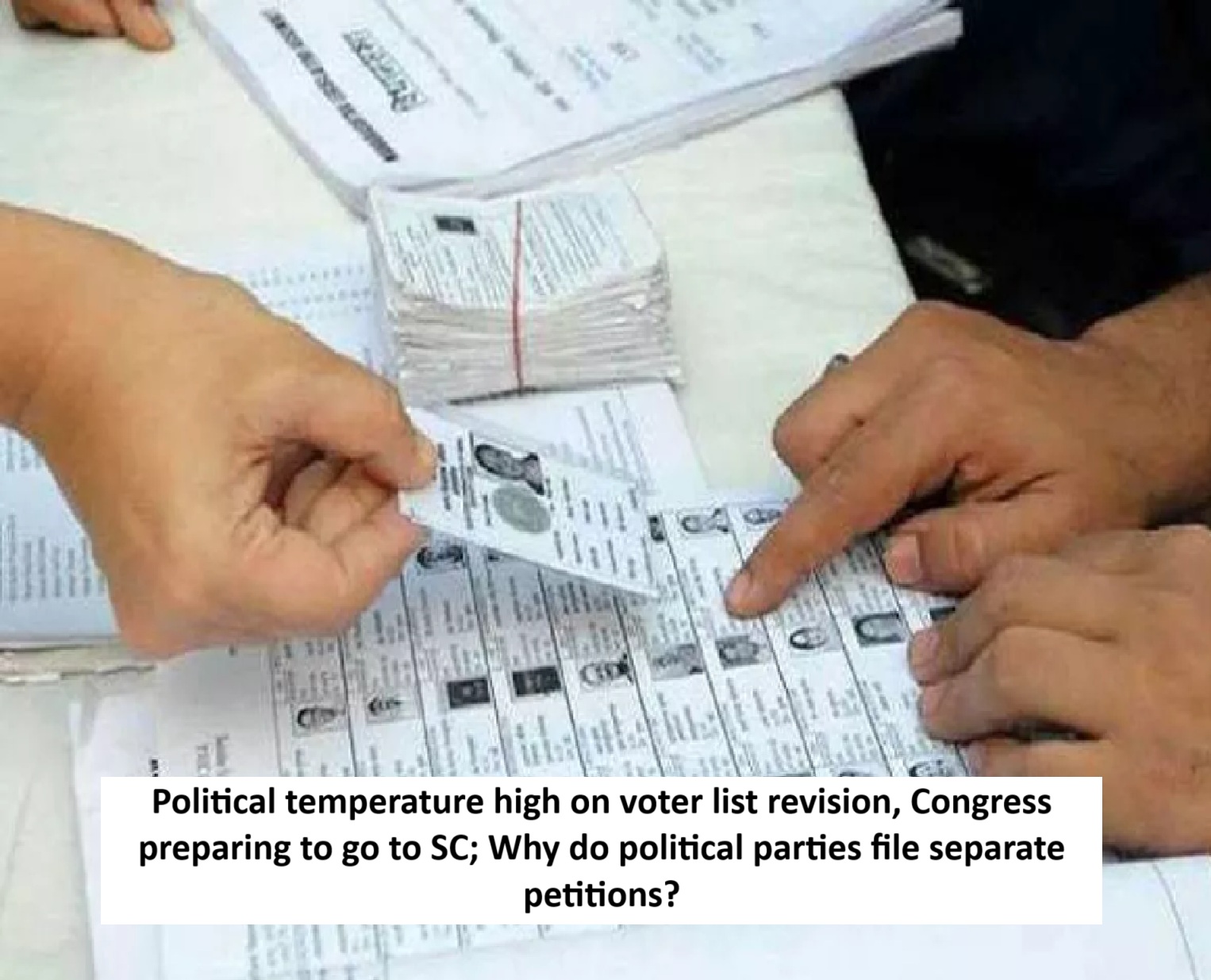
News Topical, Digital Desk : Congress is preparing to go to the Supreme Court against the special intensive revision campaign of the voter list in Bihar. It is believed that other opposition parties can also take this step. Opposition parties often do this that they are unanimous in opposing an issue, but when they go to the court, they file separate petitions.
Not only this, political parties file separate petitions, but also get the petitions filed individually by party leaders instead of filing the petition directly on behalf of the party. The strategy behind this is to keep the issue alive for a long time. Also, there is no risk of the petitions being rejected all at once.
The issue of voter list revision heated up in Bihar
The issue of voter list revision is hot in Bihar and opposition parties are opposing the process being adopted by the Election Commission and are alleging that many people will be excluded from the voter list. They have already given complaints and objections to the Commission on this issue and are now preparing to go to court.
Petitions have already been filed on many issues
The same thing happened when the Waqf Amendment Act was implemented. Leaders of various political parties have filed a petition in the Supreme Court against the law. Such as Congress MP Mohammad Javed, Imran Pratapgarhi, AIMIM chief Asaduddin Owaisi, Aam Aadmi Party's Amanatullah Khan, RJD leader Manoj Jha, DMK MP A. Raja etc.
Many petitions were filed in the case of Places of Worship Act
Similarly, many leaders have filed petitions in the matter of the Places of Worship Act. Filing different petitions in this way is a part of strategy. First of all, the opposition or the government can raise the question of locus i.e. legitimacy on the petition of a political party. They can say that how can a political party file a PIL and which of their fundamental rights has been violated.
Why do political parties file separate petitions?
Even if the court rejects these objections, political parties still prefer to file separate petitions. The reason for this is that by filing separate petitions, there is no risk of all the petitions being rejected at once and the issue also remains alive for a long time.
Parties also avoid filing a petition directly. Instead, they file a petition through their leaders personally, so that the political message of the party going to court reaches the public and the party gets the credit for winning the case, but the party is not affected by losing the case.
Read More: ISRO-NASA's NISAR mission launched from Sriharikota, know what will be its work?
--Advertisement--

 Share
Share



